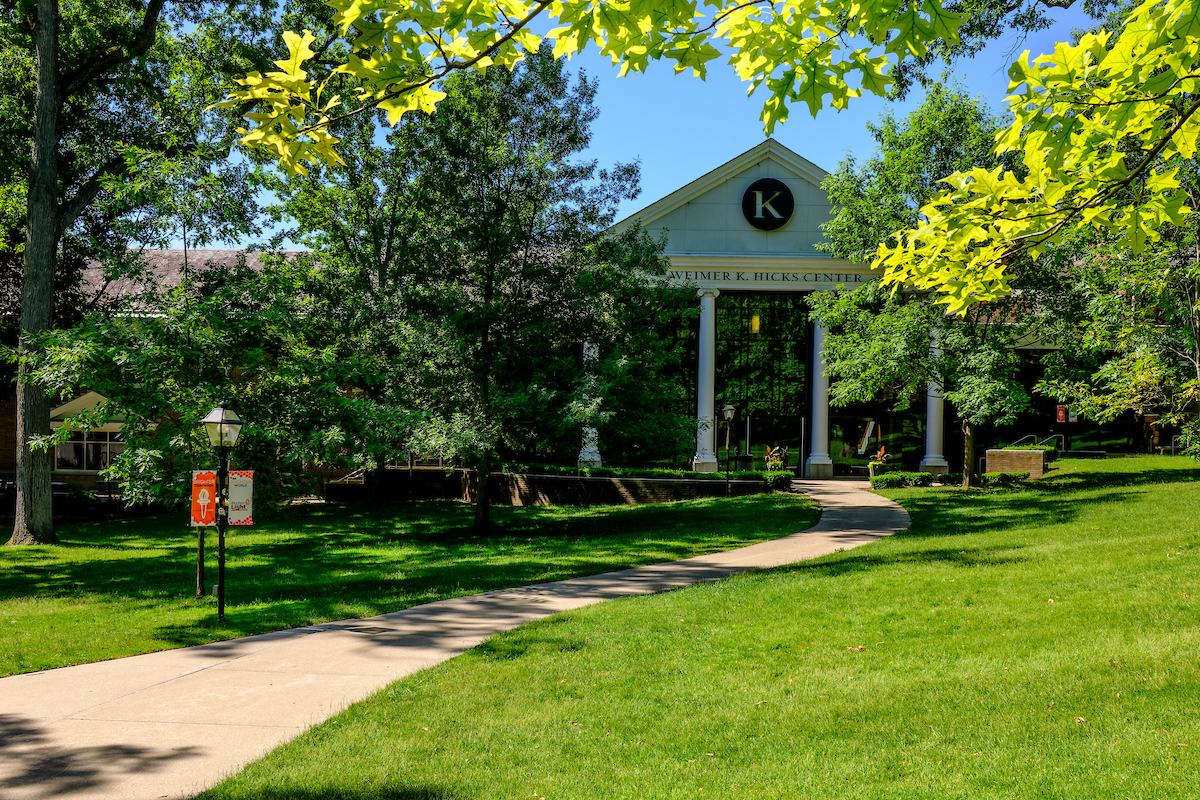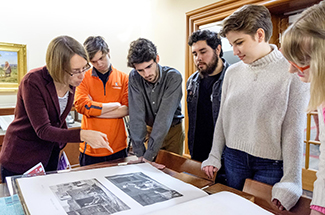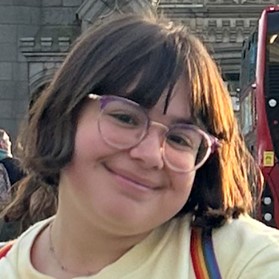
Why Study History at K?
Everything and everyone has a history. By learning how to critically examine the past, you will be able to trace personal, societal, and national development in order to shape the future.
Telling the stories of the past, you can give voice to people and experiences who may not have had the agency to do so themselves. However, studying history at K is more than just understanding what happened in the past; you will learn how to connect modern problems, situations, and institutions to the historical contexts in which they originated. By understanding the successes and failures of the past, you will be equipped to analyze and understand the present.
You will gain these skills by synthesizing and evaluating various sources and viewpoints in classes like Unsettling Colonial America; Women in Classical Antiquity; History of Science, Magic, and Belief; and Occupiers/Occupied in Post-World War II East Asia. In these courses, you will explore the diversity and similarity of the human experience across time and place by critically examining evidence and theories.
As a history alum, you will enter the world as a more informed global citizen. The skills and tools you will develop during your four years as a history student will prepare you to enter a variety of professions or continue your studies in graduate school. Past students have led successful careers in history, law, policy, foreign relations, and non-profit work.
What can you do with a history degree?
Below are some of the careers, employers, and graduate schools of our history alumni.
Careers
- Attorney/Law Clerk
- Archivist
- Professor/Teacher
- Curator
- Grant Specialist
Employers
- The Obama Foundation
- Library of Congress
- U.S. District Court
- AmeriCorps
- American Public Health Association
Graduate Schools
- University of Michigan
- Michigan State University
- Johns Hopkins University
- New York University
- University of Rochester
Program Spotlights

Take a Deep Dive into History at the Edward Moritz Lecture
Named after a late history professor who taught at the College from 1955 to 1988, the Edward Moritz Lecture is a celebration of excellence in teaching and research in history. The lecture provides you the opportunity to learn about aspects of history from the field’s leading researchers, who are invited to campus to share their scholarship. In 2020, Dr. Lewis Siegelbaum from Michigan State University spoke about national identity formation and othering in his presentation “Bumping Up Against Ukraine as a Historian of Russia.”
Showcase your knowledge with your Senior Integrated Project (SIP)
Whether you completed your Senior Integrated Project (SIP) within the History Department or not, we are proud of our seniors and want to showcase all you have learned. In that spirit, the annual History SIP Colloquium is an opportunity for all our majors to revel in their accomplishments and present their final projects in front of their classmates, professors and families. For example, Laurel Thompson ’14 conducted primary source research at the National Archives for her SIP, “Common Ground, Cooperation, and Controversy: The Partnership of SCAP and Suspected War Criminals in Occupied Japan”.

Meet the Current Departmental Student Advisor
What is the best thing about being part of this department?
History is one word (and it’s a pretty broad word at that), so it’s easy to overlook just how expansive the department is. But the history department at K really encompasses SO much. I might be studying to become a journalist, but my interdisciplinary education within the history department has helped me understand so much more about the world (and how to write about it) than I would have if I stuck only to English.
What drew you to the department?
I actually planned to major in anthropology/sociology as a freshman, but during my first year I ended up taking a ton of history classes because they always seemed the most intriguing and I had a lot of fun in them. My advisors told me it seemed like I was a lot more interested in history, and by sophomore declaration day I realized they were right!
How have you taken advantage of the flexible curriculum or experienced breadth in your education?
I’m a history major, but I’m also on the journalism track in the English department, so I get to explore both fields at the same time! I’ve also taken a few anthropology/sociology classes and have found that they overlap with classes in other departments (like so much else at K).
What is your favorite thing about K?
Everyone is so passionate about what they’re learning, and the topics they’re interested in are often super specific. It means that, just by taking a class or being friends with someone, you get to learn a lot about other topics and find out how interconnected everything really is!
What is your Senior Integrated Project (SIP)?
It’s in the English department, but it’s a collection of essays and journalistic articles about generative AI and its impact on academia, misinformation and humanity overall.
What are your career aspirations/next steps after K?
I plan on pursuing a career in journalism after K, and I’m also looking into doing my master’s degree in Glasgow, Scotland!


